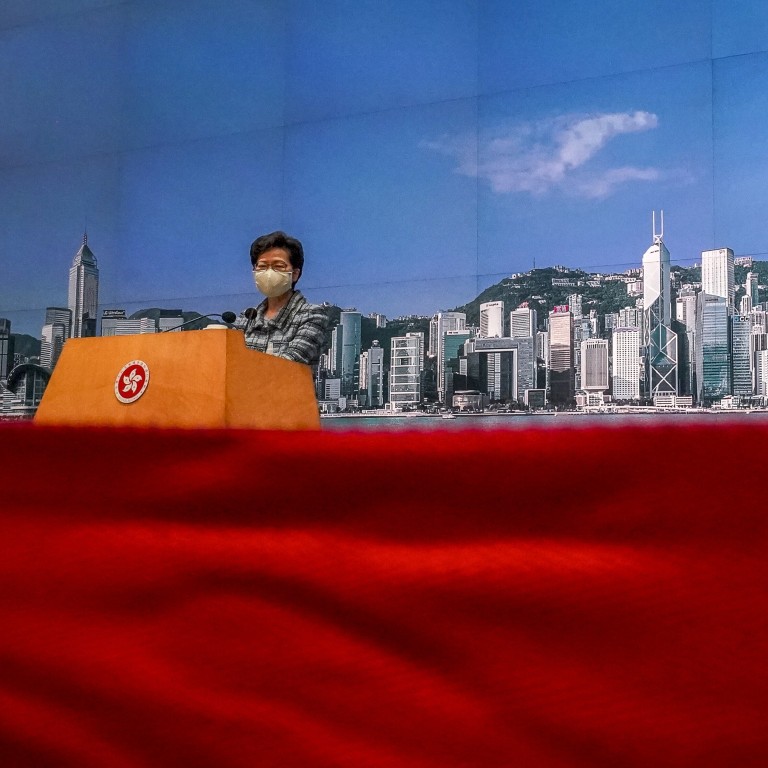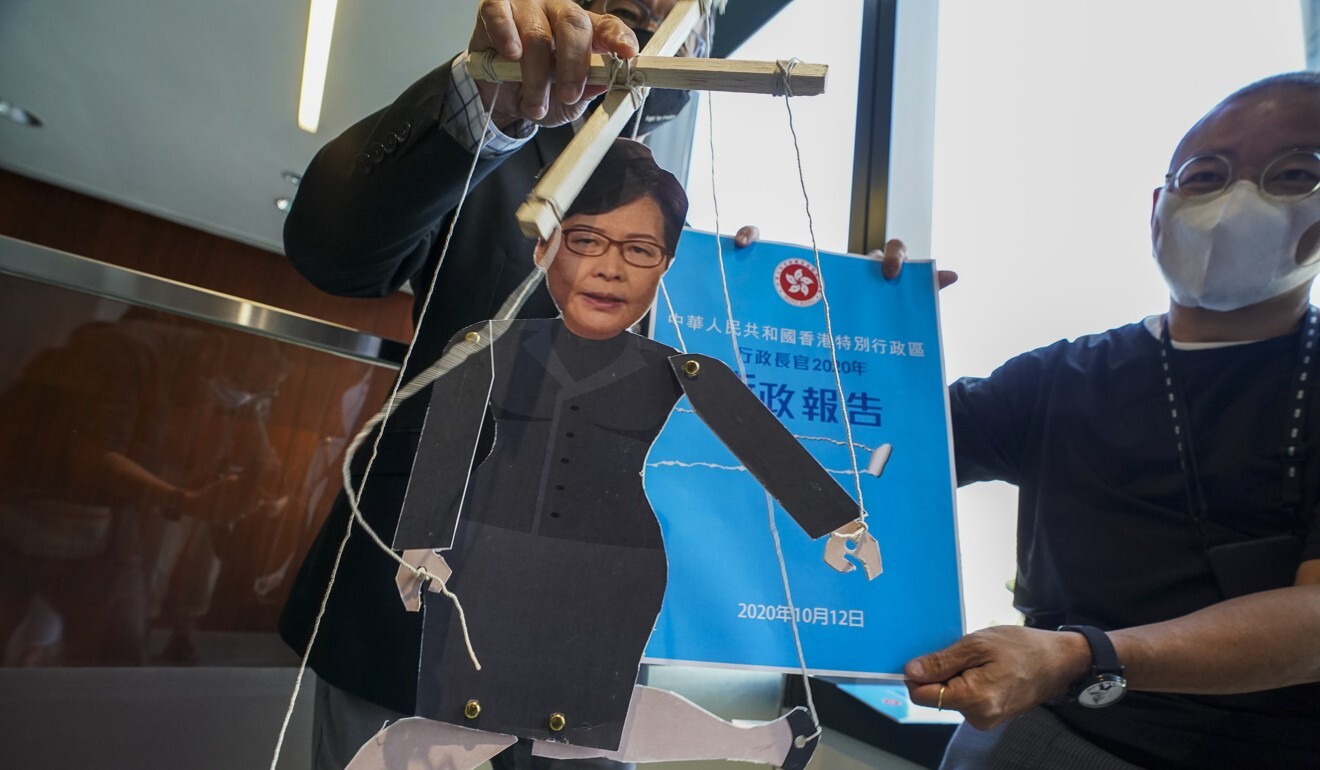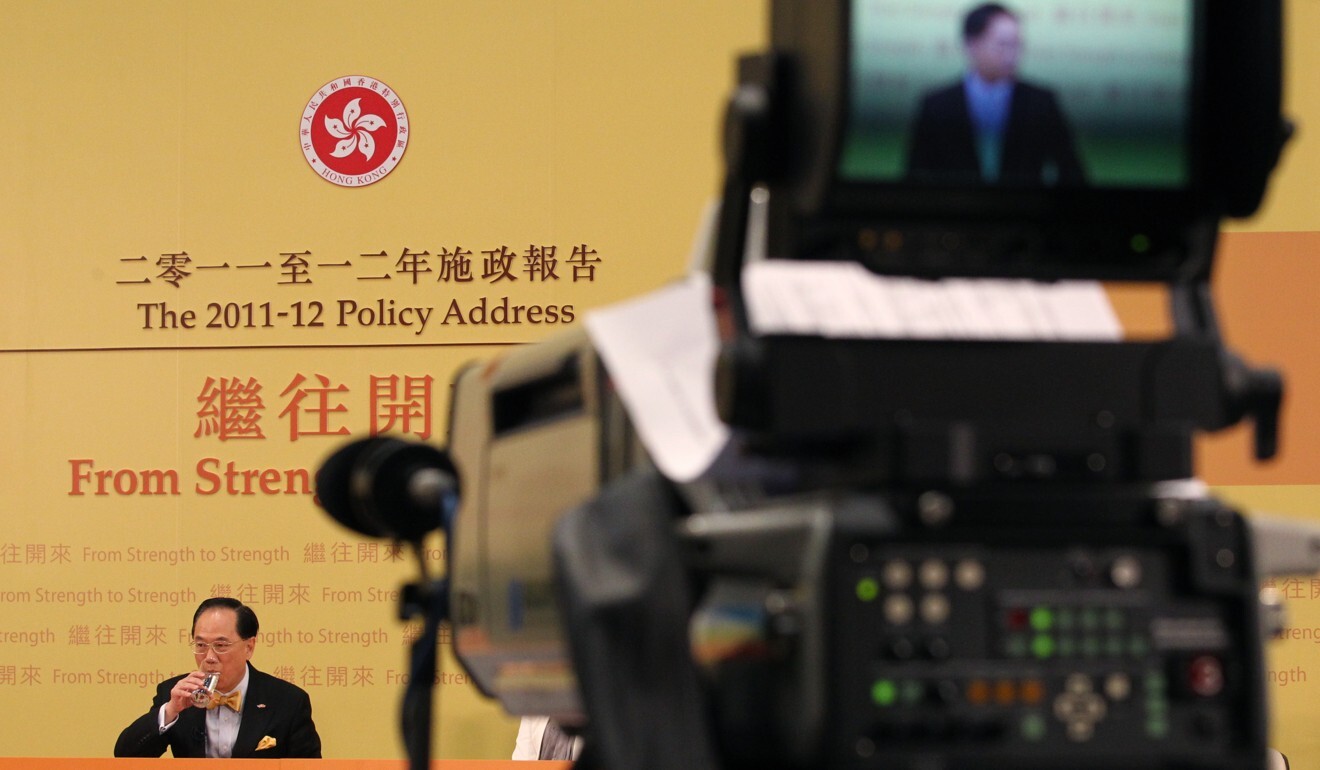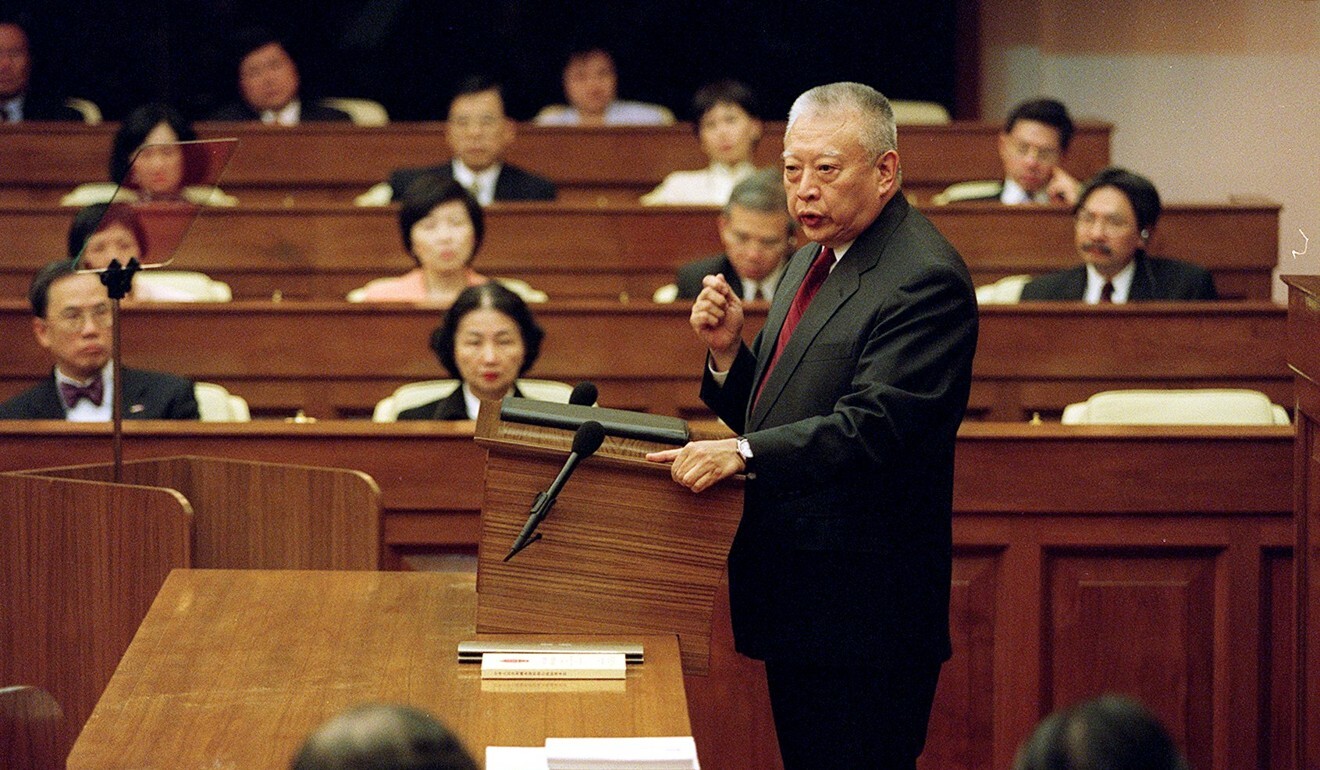
Seeking input or selling out? Hong Kong observers divided over Carrie Lam’s decision to delay policy address, but planning is likely to suffer
- Move represents first time in city history a policy address has been postponed in such a fashion
- Whatever the significance, some familiar with policymaking say the delay will inevitably have an effect on government planning
Hong Kong leader Carrie Lam Cheng Yuet-ngor’s abrupt, unprecedented decision to postpone her annual policy address elicited mixed reactions from observers on Monday, with some saying the move could reflect a legitimate need to consult Beijing, and others insisting she was being cavalier with the city’s autonomy.
Some detractors accused Lam of prioritising a desire to appease Beijing over the smooth running of the city’s policymaking establishment – not to mention her constitutional duty to look after the city’s interests – though supporters were quick to defend the move as understandable at a time of soaring uncertainty, and against the backdrop of a badly ailing economy.
Hong Kong leader delays policy address after confirmation of President Xi trip
Multiple observers with knowledge of government workings, however, agreed that whatever Lam’s departure from decades of convention might signify, her decision to postpone the address until after a series of meetings on the mainland came at the expense of delaying important government planning, which would no doubt be affected.
Cheung Man-kwong, an opposition politician who served as a lawmaker from 1991 to 2012, said the chief executive had effectively abdicated her constitutional duty to care for the interests of Hong Kong people when she decided to join President Xi Jinping for an anniversary ceremony in Shenzhen on Wednesday instead of delivering her speech as scheduled.

“The Basic Law, Hong Kong’s mini-constitution, states that the chief executive shall be accountable to the central government and the special administrative region,” Cheung said. “Her decision shows she cares more about the views of state leaders and the central government.”
Lam revealed in a hastily arranged press briefing on Monday that her flagship speech would now be delivered by the end of November, the first time it has been delayed in such an abrupt fashion in the city’s history.
Cheung, however, was unconvinced.
“Lam’s failure to tell the public honestly the real reason for the delay will only undermine her credibility,” he said.

The annual policy address is one of the biggest events on Hong Kong’s political calendar.
During colonial times, the tradition of the governor delivering the policy address at the first meeting of a new Legislative Council session, which was held in October every year, began in 1969.
The convention continued after the 1997 handover from Britain to China, though some chief executives have preferred to give their addresses in January to better coordinate with the release of the city’s annual budget.
Since her election in 2017, however, Lam has given her addresses in October.
The policy address provides an opportunity for Hong Kong’s leader to set out a range of policy initiatives, and serves the purpose of drawing the legislature’s focus to the government’s new policy initiatives at the start of each session.
According to Cheung, having several months after the policy address in October gave the government and lawmakers ample time to negotiate over policy aims and make any necessary changes before the release of the budget early the following year.
Xi starts southern tour with appeal to ‘have confidence in future’
Selina Chow Liang Shuk-yee, the honorary chairwoman of the pro-business Liberal Party, who served as a lawmaker from 1981 to 2008, said Lam’s decision to delay her address would affect the work of Legco and other stakeholders in society.
“The question we have to ask is whether it is worth making the change,” she said. “It appears that now, on some occasions, the schedules of our government and Legco are dictated by state leaders’ timetable. We may have to adapt to the working style of the mainland authorities.”
A senior government official who is familiar with the interaction between the executive branch and the legislature said he had concerns about delaying the address on such short notice, noting it was “not conducive” to important planning.
“Discussion with mainland ministries is always ongoing, and fighting Covid-19 is a long-standing issue,” said the official, who spoke on condition of anonymity.

“We understand the need for a comprehensive readout on all these issues, but a timely delivery of the policy address is equally, if not more, important.”
Political commentator Johnny Lau Yui-siu, meanwhile, also said Lam’s decision to postpone her policy speech represented a failure to defend Hong Kong’s autonomy.
“She has to wait for the instructions from Beijing before finalising her policy address, and I doubt she made her case to Beijing that the policy address should be delivered as scheduled,” he said. “How can Hong Kong people expect her to defend the ‘two systems’?”
In the first few years after Hong Kong’s return to Chinese rule, Beijing was confident that the city was able to chart its own course.
A Beijing-friendly politician recalled a meeting between himself and a top mainland official overseeing Hong Kong affairs in the late 1990s. At one point during the meeting, the official was told by a subordinate that the Hong Kong government had sent over a copy of the policy address to be given by then chief executive Tung Chee-hwa.
Beijing showers policy incentives on Shenzhen to create model Chinese city
“The official said: ‘We have full trust in Mr Tung. No need for us to take a look at it’,” the politician recalled. “It spoke volumes about how the central government had really granted a free hand to the Tung administration to govern Hong Kong.”
But the situation changed after 2003, when an estimated half a million people marched on July 1 to oppose a national security bill, which was abandoned in the face of the massive opposition.
In January of 2004, the Hong Kong and Macau Affairs Office issued a statement on the policy speech delivered by Tung that year, marking the first time since 1997 that Beijing had commented formally on a policy address. Analysts said that, since then, Beijing has kept a close eye on the annual address.
Pro-establishment lawmakers, meanwhile, backed Lam’s decision to delay her address on Monday.
Hong Kong elite expected to attend as Shenzhen hosts President Xi Jinping
Martin Liao Cheung-kong, a lawmaker representing the commercial sector, said the chief executive would need to consult mainland ministries to iron out central government policies that could be beneficial to Hong Kong.
“I think they need time to do that,” he said.
Alice Mak Mei-kuen, a legislator from the pro-Beijing Federation of Trade Unions, said she hoped Lam would make good use of the extra month to come up with effective measures to help the public.
“When people feel uncertain about the future, they need a government to show them a road map and take them out of this difficult time,” she said.
But even executive councillor and pro-establishment lawmaker Regina Ip Lau Suk-yee acknowledged that the postponement of Lam’s policy address at such a late stage was “somewhat surprising”.
“I think it signals the insertion of some new, major policy initiatives into the speech,” she said. “Although there will be some delay, we will still have full opportunity to debate it after delivery.”


